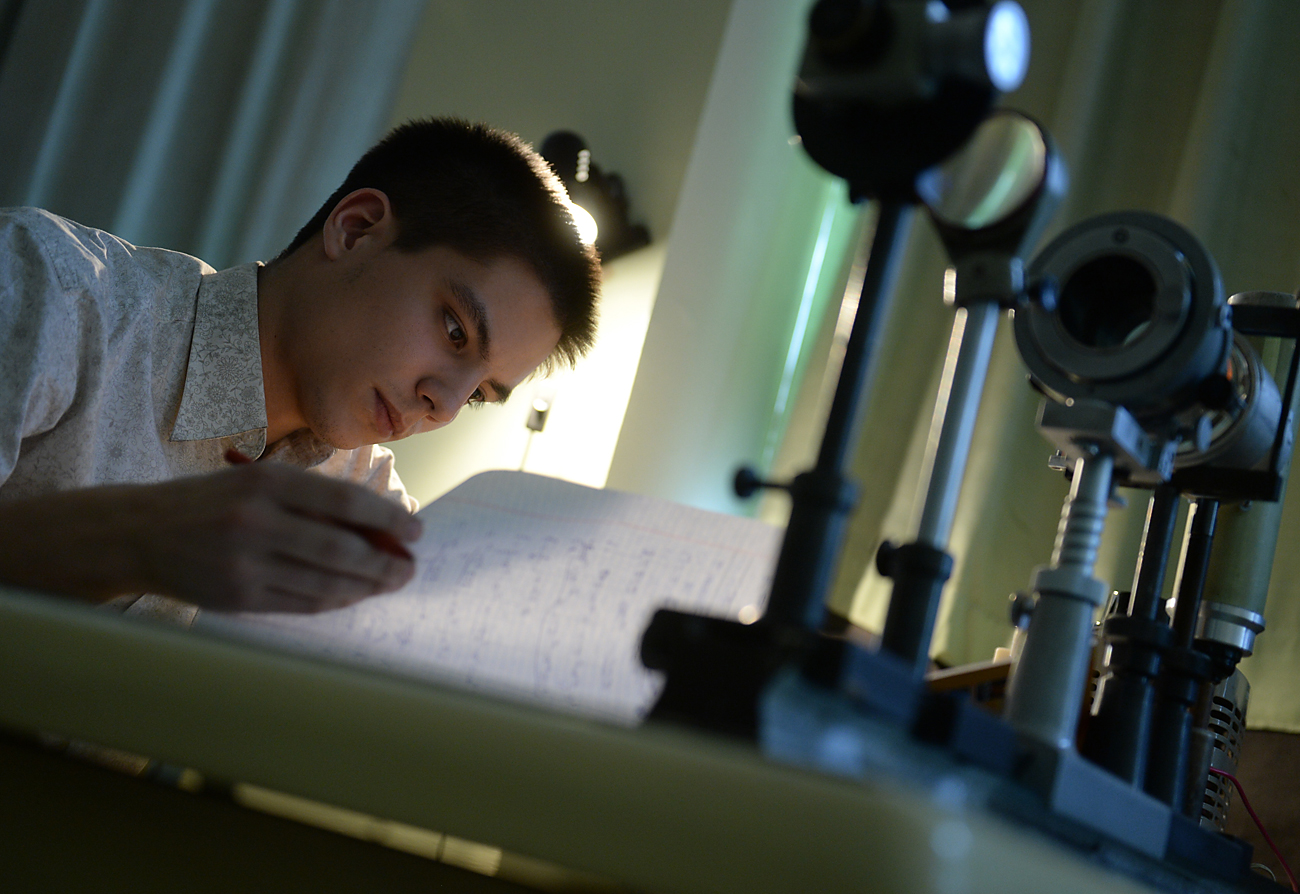
A student doing a research at the Moscow Engineering Physics Institute.
Valery Sharifulin/TASSRussia’s representation in world university rankings continues to grow, with the latest QS World University Rankings showing a positive trend for domestic universities, an improvement on last year, when almost a third of Russian universities slipped down the rankings.
Eight Russian universities instead of five were ranked among the world's top 400 universities on the list, which was published by the UK company Quacquarelli Symonds on Sept. 6; Moscow Engineering Physics Institute, Tomsk State University and Tomsk Polytechnic University were added. Lomonosov Moscow State University, which kept its 108th position, has once again been named the best Russian university.
St. Petersburg State University dropped two places to 258th. For the first time, Novosibirsk State Technical University made the top 500 list, increasing the presence of Russian universities to 22, 18 of which advanced in the rankings.
In 2015, the ranking's authors stopped considering scientific articles with a large number of authors (more than 10), which was a serious blow to the positions of the leading Russian universities. Many of them rolled back to the positions of two or three years ago.
At this stage the state came to the rescue of Russia's leading universities. A special project to promote the best was created (the so-called Project 5-100), which involves 21 universities. From 2013 to 2015, 54 billion rubles ($836 million) was allocated for the project from the budget, with 14.5 billion rubles ($224 million) being planned for 2016-2017.
Ben Sowter, the head of QS Intelligence Unit, believes that government support helps participants. Thirteen out of 21 universities supported by Project 5-100 were listed in the rankings, and all the 13 either retained or improved their position in 2016, he said.
Nevertheless, the compilers warned that the Russian universities still have a serious weak spot – research and citations per faculty.
Russia has the lowest rate on this indicator among the BRICS countries: 86 percent of universities have seen their positions for citations per faculty slip, and, as a result, none of them made the top 600 list on this indicator.
The assessment of universities in terms of citations is intended to highlight the “research impact” of any given university – the more often articles produced by a university are cited in other research, the more influential the university is considered to be.
"The Russians are historically very weak on this indicator, it would be a little too optimistic to expect a revolutionary breakthrough here," said Zoya Zaitseva, QS regional director for Eastern Europe and Central Asia.
According to her, the compilers of the ranking abandoned last year's practice of limiting the number of co-authors of the study to 10 organizations, which had an effect on Russian universities’ slump in the ranking. Instead, a system of coefficients was developed to calculate citations of articles according to branches of science.
This system will also not contribute to a faster rate of achieving the goals stated in [President Vladimir Putin's] May decrees, said Lyudmila Solntseva, director of the Ranking Information Center at the Higher School of Economics in Moscow.
"The new methodology leaves out articles involving more than 59 organizations in the field of 'Physics & Astronomy,' while, for example, in the field of 'English Language,' the number of organizations should be no more than four," she said.
Given that Russian researchers often work in co-authorship with foreign colleagues, said Solntseva, this will have a negative impact on the development of cooperation with foreign organizations.
First published in Russian by Kommersant
All rights reserved by Rossiyskaya Gazeta.
Subscribe
to our newsletter!
Get the week's best stories straight to your inbox